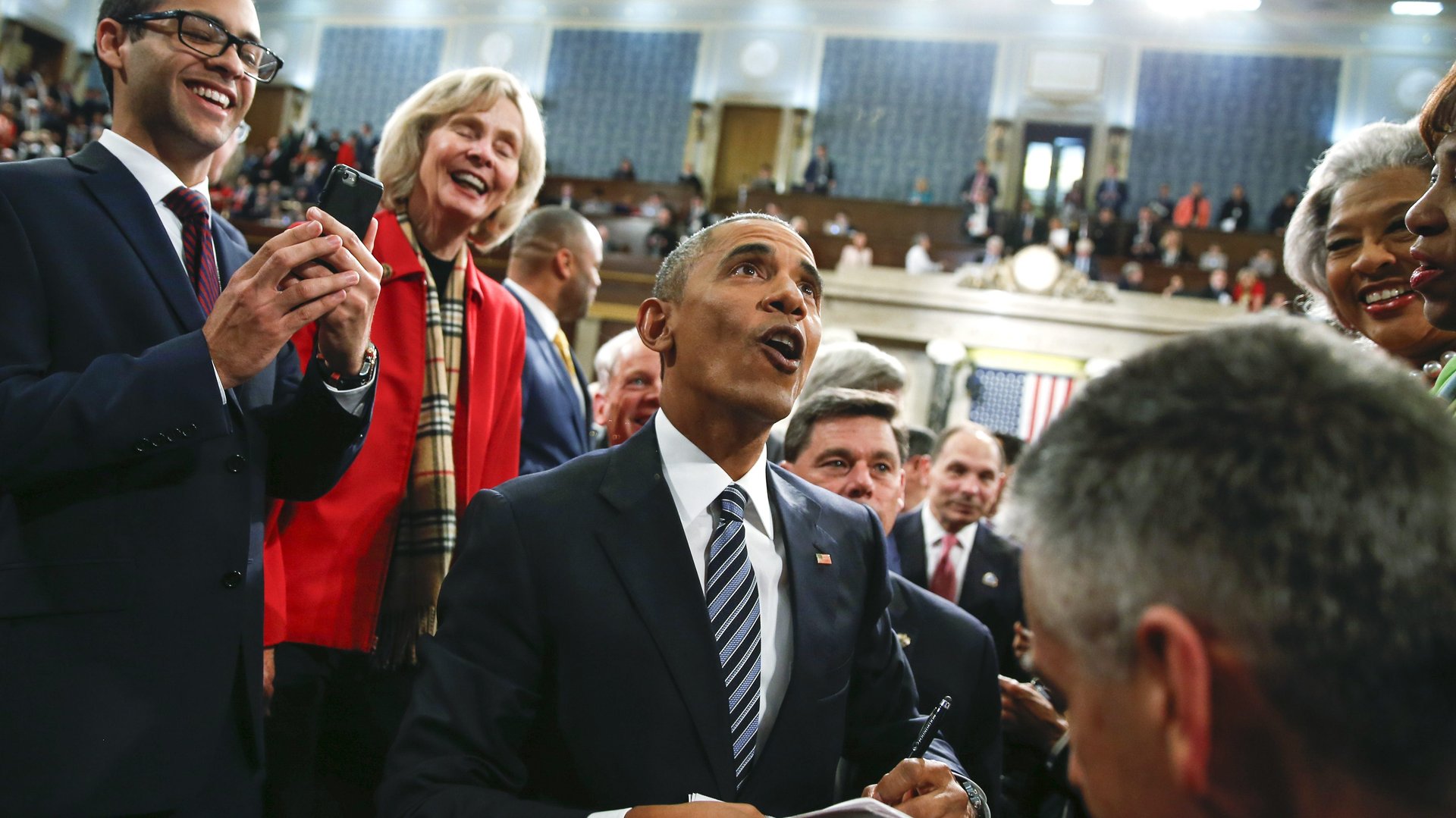The Obama Foundation wants to take on the internet’s echo-chamber problem
What will Barack Obama do next? The question has hovered in the air ever since Donald Trump’s victory made clear that much of what Obama had done as president could be summarily dismantled. Now more clues are emerging.


What will Barack Obama do next? The question has hovered in the air ever since Donald Trump’s victory made clear that much of what Obama had done as president could be summarily dismantled. Now more clues are emerging.
The Obama Foundation, which last week unveiled plans for its new headquarters on Chicago’s South Side, has hired Glenn Otis Brown, a veteran of Twitter and Google, as its chief digital officer. His task, say foundation officials, is to build a team that, among other things, will study “the problems of digital media in the 21st century”—the filter bubbles and audience fragmentation that have made it almost impossible for people from different political stripes to hold cogent debates around an agreed set of facts.
The foundation’s broad mission is to be “a living, working center for citizenship and a community center for the world,” according to the official announcement. It will train would-be civic leaders, offering everything from intensive fellowships for a small, select group to self-guided online courses that anyone can use. Brown’s team will be “a cross between a nonprofit start up and an in-house creative agency” that will create those online courses, as well report on the foundation’s own activities, highlighting examples of digital tools and techniques that civic activists are using. It may also build prototypes of such tools itself.
Along the way, the foundation plans to discover what kinds of content or platforms can help overcome the silos of conversation on the internet, uniting people instead of dividing them. How it will go about that is vague. The first step, says Brown, is “waking people up to the fact that this is an issue—that in our online lives, what we see everyday is filtered, beginning with our own habits—and doing it in a way that isn’t a turn-off or scolding.”
Brown is quick to point out that the foundation won’t be the only place trying to solve this problem. It’s already a central goal for organizations such as Harvard University’s Berkman Klein Center and the Texas Tribune, where Brown is a member of the board. It’s also a project for Facebook’s Mark Zuckerberg, who has made it one of the planks of a new campaign he calls “building global community.”
What do the Obamas bring to the table? The shortest answer: themselves. Their public profile and convening power, Brown says, could draw more attention to the echo-chamber problem as well as to the most promising efforts to solve it.
There’s a marked contrast emerging between Obama’s post-presidential project and those of his two Democratic predecessors. All three men left office relatively young—Jimmy Carter at 56, Bill Clinton at 54, and Obama at 55. But where Carter and Clinton both chose to focus their efforts on long-standing global issues such as public health, conflict, human rights, education, and economic development, Obama seems to be reacting directly to the past year’s political trends and looking closer to home.
He also seems to want to bring a less top-down approach. Whereas Clinton’s foundation “was about bringing a lot of prominent and wealthy people together and raising money from them to throw at poverty and disease around the world, I think the Obama Foundation will be a lot more about grassroots, bottom-up change,” Jon Favreau, an adviser to the foundation, told GQ earlier this year.
That ethos, say foundation officials, is embodied in a short video that depicts a young girl picking up the microphone that Obama dropped at one of his farewell speeches:
For all that this portrays the ex-president as someone who will step back to let others lead, it’s worth remembering he has a long career ahead of him. Carter is still working at 92. With future medical advances and his healthy lifestyle, Obama could stay active into his second century.